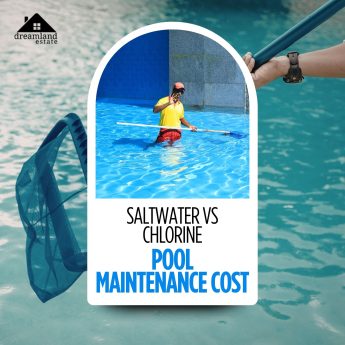Realtor vs. Real Estate Agent: What You Need to Know Before Buying or Selling?

Whether you are a buyer or a seller, you would surely notice these terms being utilized: real estate agent and realtor.
Yeah, I know! Initially, realtor vs real estate agent: they both look to be similar. True?
Just a person who helps you to sell or buy your properties. But the real difference starts to surface once you dig deeper. You begin to realise there are a lot of key differences between these two that many overlook.
Don’t worry, it is not that difficult. In this article, I am going to discuss the typical distinctions between a real estate agent and a realtor.
You’ll understand at the end of this blog post about realtor vs real estate agent, who is who, and who you yourself might want to have on your team when you’re facing a big decision in your own world.
First Things First: What is a Real Estate Agent?

So, to understand realtor vs real estate agent, I am going to start with the very basic, okay? A real estate agent is a licensed professional who is eligible to help you in buying, selling, or renting properties.
However, it is not simple to obtain such a license. They must take their pre-licensing courses and also pass a state exam.
This is what they normally do to their clients:
- They help to market properties for sale.
- After that, they will assist you in finding a house to buy that is appropriate for you and your needs, financially and otherwise.
- Their role is to negotiate between buyers and sellers.
- The agents can handle the paperwork and legal details required for property transactions.
In simple terms, a real estate agent is someone who helps you buy or sell property. They link buyers and sellers, making things easier than if you tried to do it by yourself.
However, that’s just it: not all real estate brokers are Realtors.
That’s the distinction between “realtor vs real estate agent”.
Then, who is a Realtor?

A Realtor is a real estate agent with one major added ingredient. To become a Realtor, a real estate agent must be a member of the National Association of Realtors (NAR).
Once they become part of NAR, they are required to abide by the strong code of ethics. It is a list of regulations that ensures
- Truthfulness
- Transparency
You can rest assured that your deals or the negotiation is true!
Realtor vs Real Estate Agent: Main Differences
Let’s put both sides side by side so it’s TOTALLY clear:
| Real Estate Agent | Realtor |
|---|---|
| Licensed professional assisting in the purchase/sale/lease of real estate. | Licensed agent who belongs to NAR as well. |
| No special membership needed. | You must follow the NAR Code of Ethics. |
| Works under a brokerage. | Works under a brokerage and is part of the Realtor network. |
| The title is more general. | The title demonstrates extra professionalism and a strong ethical commitment. |
If you listen to people discuss realtors and real estate agents, their most noticeable difference is in ethics, membership, and professional standards.
Why is it that it matters?

You may be thinking to yourself right now, “Okay, fine, someone has memberships and some ethics regulations in place. But would that actually help me out as a seller or buyer?”
The answer is actually yes, it can be very significant. Here’s why:
1. Honesty and responsibility
There are strict regulations that Realtors are required to abide by. If you want to find someone to do only what’s best for you, a Realtor provides you with additional confidence.
2. Networking benefits
Members can tap special tools, data, and professional groups of NAR. It allows them to access market intelligence or spot an opportunity earlier.
3. Reputation
Not all agents are Realtors; hence, having the title “Realtor” can prove to be more trustworthy. Like opting for a board-certified doctor, these individuals made it that extra step.
That being noted, however, a real estate agent who is not a Realtor can still be excellent at their work. What matters most is to research before you actually hire one.
When do you need assistance from a real estate agent?
This is the most difficult question of all time! Whether you want to go with a real estate agent or not might depend on what you want. What do you want? Let’s find out!
- Local knowledge. Yes! You should work with someone who knows the area well! Someone who understands the streets, alleys, and even the housing trends better than anyone.
- You feel like you are comfortable working with them or their professionalism based on the client reviews and past work.
- And finally, you should also be keen on their personal skills and not just their title of employment.
When Should You Work with a Realtor?
Alternatively, a Realtor might prove to be a better choice in the event that.
- You want that extra assurance of professional standards and ethics.
- You’re in a tough or competitive market.
- You like to work with someone who has unrestricted access to all of the NAR tools and resources.
If being open, responsible, and feeling secure are important to you, choosing a Realtor might make you feel more confident.
Myths Shared Between Realtor Vs Real Estate Agent
Let’s dispel these misguided concepts:
- “Realtor” is just a euphemistic term for real estate agent.
No such thing! Being a Realtor entails formal membership and code of ethics requirements.
- Realtors do charge more than agents.
Not necessarily. Both Realtors and agents receive a commission (not infrequently 5-6% of purchase price). Their commissions are more related to their office and their immediate area than to the title itself.
- Only realtors can sell residences.
You are again wrong. Any licensed real estate agent can lawfully help you to purchase or sell a property.
- A Realtor is superior to an agent at all times.
This is not always the case, however. There are highly educated non-Realtor agents out there. These are skilled and professional negotiators.
How to Decide Between the Two?
This is a brief guide to assist you in making your decision:
- Verify their license. Confirm that they are licensed to operate in your state.
- Ask if they are a Realtor. This shows whether the NAR Code of Ethics must govern them.
- Observe experience. Titles are important. But real-life practice is also important. Someone with 10 years of experience in your field might prove to be more helpful than someone new. It doesn’t matter from what title they come from.
- Read reviews and ask for referrals. Word of mouth is very important when it comes to the real estate world.
- Ask them anything. Do not hesitate to raise questions: How do they negotiate? How do they sell houses? What’s their approach to communication?











Leave A Reply